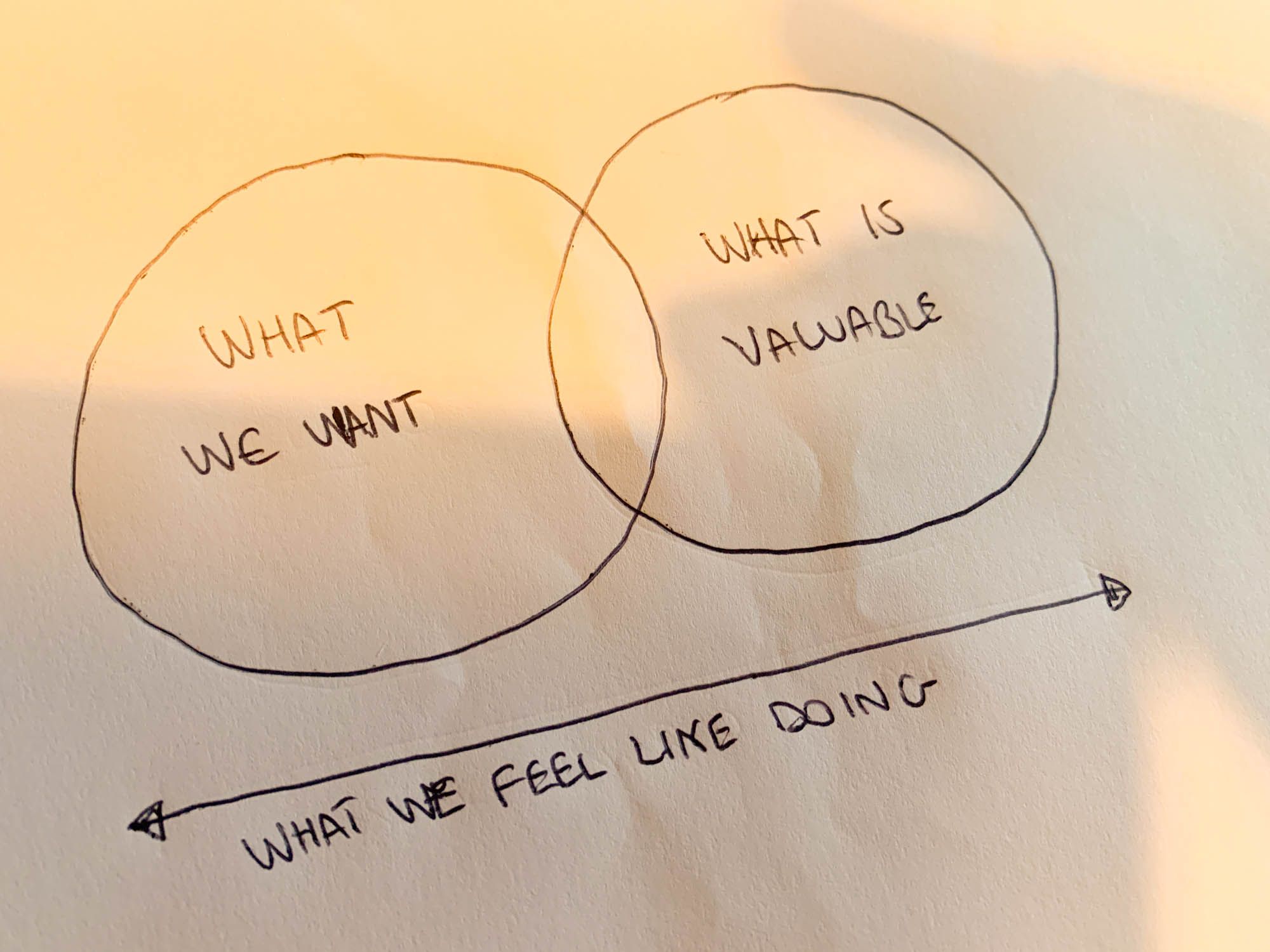Creative Bulletin n.87

Since we’ve been mostly resting (and it was about time 😂), we have little to tell so we take this opportunity to answer a question that Volker, who is reading this, asked us:
"How do you work on a day-to-day basis? You are dealing with very different areas – product design, managing a team, manufacturing, shipping etc. – and despite this it always feels like you are hyper focused. I was wondering how you are structuring your days”.
💪💪💪 How we choose what to do day by day
After three years in business we have come to this conclusion: our to-do list is potentially endless, and it could kill us because there will never be a big enough team or a long enough day to take care of it all, so we need to choose carefully what to do and why.
We generally go about it this way:
- We ask ourselves: "How much do we want to do it?" We could decide to sell Moleskine-type notebooks, or to produce dozens of Fabula (one for every literary genre), but... do we actually want to do it? Would we be happy to sell notebooks and work on products that don't really interest us just to have more stuff to sell? Where do we want to go? What kind of company do we want to run? Basically: does this thing nurture us or not?
- We ask ourselves: "What is the value of a specific task?". Not everything has the same importance. Deciding to change the shipping supplier could reduce costs by 10% and increase profits considerably, while setting up a new mail marketing system could optimize results but not substantially. In short, let's crunch some numbers: what is the benefit in relation to the cost / commitment? (p.s. BAD, our new product helps with just that!)
- Let's set up a list of priorities. A company where you only do what you want, won’t survive; at the same time, in a company where only what brings the greatest value is taken care of, the team would burn out 😂 Usually we try to prioritize tasks that we like and that can potentially bring in good value (for example developing a new product that we believe in), then we add some high economic impact operations in our list (optimization of shipments) and also the tasks that nourish us and give us energy (the bulletin, for example).
- In the end we do not carry out the tasks in order of priority but according to how we feel. The truth is, no one is chasing us, we don't save lives, we are not the SWAT team, so who cares if we do something today or if we do it tomorrow? We have learned to follow our internal flow without judgment: if we wake up and want to work on the shipments, we do that first; if instead we really want to work on the new product, we stop doing everything else. When we work on what we want, we are faster and then we don't get headaches 😉
🍓🍓🍓 Bonus 1: We constantly question ourselves
What we have described above is our ideal work-flow, but we do not always manage to keep up with it: we happen to lose focus at times. So we learned to discuss at length how we handle our work, mostly if we’re not feeling good about it – this is the key point – and also why we feel that way.
Andrea used to prioritize repetitive and boring tasks and ended up being tired and frustrated after a day in the office. Now, this problem is not too difficult to solve: all it took was to dilute those tasks (which were also not very urgent and low impact) and alternate them with something more satisfying. But Andrea fell into that pattern again, so we asked ourselves: "Why does Andrea want to live like that?". And we found that he preferred to take care of things of little responsibility because the more creative ones were scary. The same happened to Matteo: he risked burnout several times, not because there were so many things to do that he couldn’t stop, but because he preferred to burn out at work rather than have the time to write a novel (and risk being rejected!).
Bottom line, we are sure that behind every discomfort there is an advantage and we try to see it and deal with it so we can live the life we want.
🍓🍓🍓 Bonus 2: if, however, an intuition comes...
Matteo had decided not to write the bulletin in August, but yesterday he dreamed that someone was saying to him: "I have to go write a bulletin" and in his dream he felt so much envy for that person so... here we are 😂
We hope that these "confessions" can be useful!
And you? How do you work?
With ❤️,
Matteo and Andrea
*** Sefirot’s Creative Bulletin ***
In this bulletin we tell you how we run an independent publishing company.
🕰 If you want to read past Bulletins, you can find them here https://blog.sefirot.it/tag/creative-bulletin
🚀 If you want to share it with friends, please do!
🐝 If someone shared it with you and you’d like to subscribe, follow this link
🔮 Did you know that we also have a Telegram group where you can connect with other creatives?

